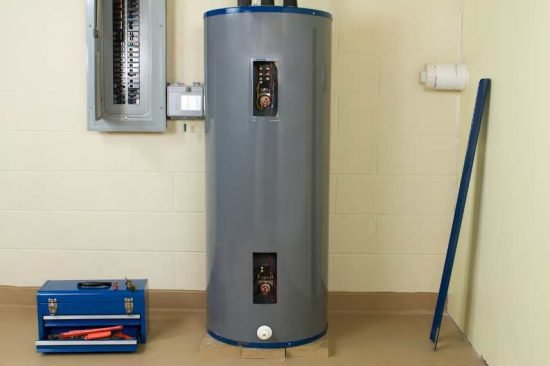Water heaters are essential parts of our daily lives, providing access to hot water for bathing, cleaning, cooking, and other tasks. But like all appliances, they won’t last forever. Let’s take a deeper dive into their lifespan as well as factors that could shorten or extend it.
Understanding the Basics: Average Life of Water Heaters
The first question that comes to mind of several people when investing in a water heater is: “How long does a water heater last?”. On average, water heaters of most built last 8-12 years, while tankless or on-demand models may last for 20 years or even more if used with proper care. Although a number of factors can impact this range; which we will explore further below.
Water heaters: Types And Lifespans

Let us look at different types of water heaters and their lifespan.
Traditional Tank-Style Water Heaters
These are the most frequently used models of water heaters – found in residential settings. They work by heating water stored in a tank before dispensing it throughout the house. As mentioned above, their lifespan typically lies 8-12 years. Why? Because continuous exposure to moisture causes corrosion or degradation over time.
Tankless or On-Demand Water Heaters
Tankless geysers heat water only when needed – hence their name “on-demand.” By not constantly storing and heating water, wear and tear is reduced significantly, and they may last up to 20 years or longer with proper Maintenance.
Factors Impacting Water Heater Lifespan
When contemplating “how long does a water heater last“, it’s essential to take into account various elements that could alleviate or extend its lifespan:
- Quality of Installation
A water heater that’s been professionally and correctly installed will undoubtedly outlive one that was installed poorly or hastily since proper installation ensures all components are functioning optimally and reduces the risk of premature failures. The water heater must be installed under the specified appliance standard - Water Hardness
Areas with hard water contain higher concentrations of minerals that can accumulate inside a water heater and lead to scale buildup, reducing efficiency while shortening its lifespan significantly. This issue needs to be taken seriously, as hard water can drastically affect efficiency as well as shorten the lifespan of geysers. - Maintenance Frequency
Routine Maintenance is key to the long-term health and efficiency of a water heater. Flushing its tank, inspecting for signs of rust or corrosion, and checking anode rod inspection are all vital steps, while tankless models must descaling regularly to prevent mineral buildup. - Usage Patterns
A household with high hot water demands will place greater strain on their water heater than one with limited needs, leading to faster wear and tear on this appliance. - Initial Quality of the Appliance
Not all water heaters are curated the same. Investing in top-quality appliances from a reliable manufacturer and brand can make a substantial difference in how long your water heater lasts.
Signs That Your Water Heater Is Nearing its Lifespan
Knowing the average life of water heaters is only half the battle – knowing when its lifecycle has reached an end is also vital. Here are a few indicators that it may be time for replacement:
- Rusty Water
Rusty water from hot water faucets indicates the internal components of your tank may have begun rusting and need replacement. - Noise
As water heaters age, sediment accumulates at the bottom of their tanks. As this sediment hardens when heated, noise may emanate from this appliance in rumbling or banging forms. - Water Leaks
Physical leaks around your water heater could indicate its inner tank has failed. - Inconsistent Heating
It is also called non-consistent heating and can occur as sediment builds up at its base, causing it to heat unevenly over time. Luckily this issue can usually be avoided through regular maintenance procedures and service checks by trained service techs. - Inconsistent Heating
This could indicate internal tank failure or inner tank damage. If you find that your hot water supply has become less hot over time, this could be a telltale sign that its efficiency has diminished.
How to Extend the Lifespan of Your Water Heater
Here are a few things that you can do to increase the lifespan of your geyser:
- Regular Maintenance is vital: Arrange professional inspections and get timely water heater repair services.
- Install a Water Softener: For areas with hard water, installing a water softener may help prevent scale buildup in your water heater and extend its lifespan.
- Avoid Overloading: Overworking can shorten its life significantly, so be mindful of your hot water use patterns to extend its lifespan and avoid early burnout.
Conclusion
The longevity of water heaters ultimately depends on factors like their type, quality, usage patterns, and maintenance routine. Making regular inspections part of your routine maintenance regimen and promptly addressing any concerns as soon as they arise is key to ensuring the long-term efficiency of your appliance. Call the Roto Rooters plumbing experts today for your water heater maintenance. We are available to assist you 24/7 as well as for emergencies.